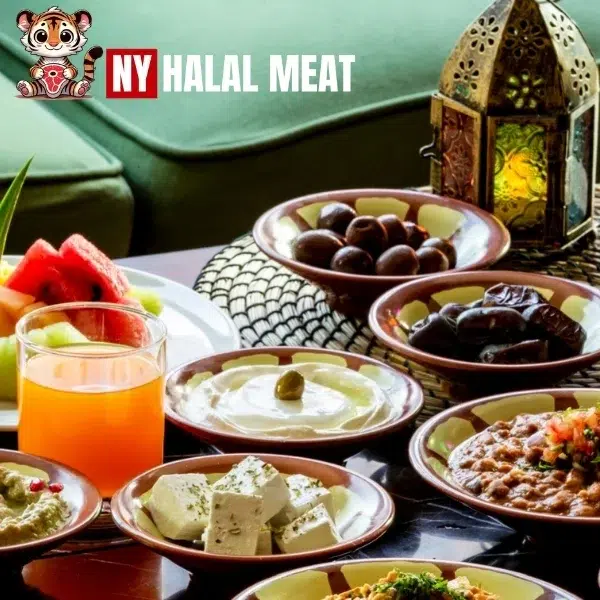Halal and Healthy Ramadan Meal
How to Plan a Halal and Healthy Ramadan Meal
Why Is It Important to Plan Healthy Meals During Ramadan?
Fasting for long hours can affect your body if meals are not planned properly. Poor food choices may result in fatigue, low energy, or digestive issues. With balanced and nutritious meals, you can feel energized and healthy throughout the month.
Building Blocks of a Healthy Ramadan Meal
A healthy Ramadan meal should include:
- Complex Carbohydrates: Whole grains, oats, and brown rice for steady energy release.
- Lean Protein: Halal-certified meats, fish, eggs, and legumes.
- Healthy Fats: Olive oil, avocados, nuts, and seeds.
- Fiber: Fruits, vegetables, and whole grains to aid digestion.
- Fluids: Water and water-rich foods to maintain hydration.
How to Plan a Nutritious Suhoor (Pre-Dawn Meal)
Suhoor is the meal that fuels your body throughout the fasting hours. It should include slow-releasing energy foods and hydration.
Focus on Slow-Release Carbs
Choose whole grains like oats and brown rice for long-lasting energy.
Add a Good Protein Source
Include protein-rich foods like eggs, Greek yogurt, or nuts to stay full longer.
Stay Hydrated
Drink at least 1-2 glasses of water and avoid caffeinated drinks.
Planning a Healthy Iftar (Breaking the Fast)
Breaking your fast with nutritious and balanced meals is key to recovery after a day of fasting.
Start with Dates and Water
Following the Sunnah, dates and water help replenish energy quickly.
Begin with a Light Starter
Soups or salads are gentle on the stomach and help with hydration.
Include Lean Protein and Healthy Carbs
Grilled halal chicken, fish, or legumes combined with whole grains make a balanced iftar meal.
Avoid Overeating
Eat slowly and listen to your body’s hunger signals to prevent bloating or discomfort.
Healthy Snacks Between Iftar and Suhoor
Light, nutritious snacks can help maintain energy levels during non-fasting hours. Examples include:
- Mixed nuts and dried fruits
- Fresh fruit smoothies with almond milk
- Baked samosas with spinach, lentils, or chicken
- Roasted chickpeas or hummus with whole-wheat crackers
Staying Hydrated During Ramadan
Hydration is essential to prevent fatigue and dehydration during fasting. Follow these tips:
- Drink 8-10 cups of water gradually between iftar and suhoor.
- Avoid sugary and carbonated drinks, as they can cause energy crashes.
- Incorporate water-rich foods like cucumbers, watermelon, and oranges into your meals.
Sample Ramadan Meal Plan
Here’s a simple and balanced meal plan for suhoor, iftar, and snacks:
Suhoor
- Whole-grain toast with avocado and boiled eggs
- Oatmeal with bananas and a handful of almonds
- 2 glasses of water
Iftar
- 2-3 dates and a glass of water
- Lentil soup or a green salad
- Grilled chicken breast with quinoa and roasted vegetables
Snacks
- Greek yogurt with chia seeds
- A handful of almonds and dried apricots
Tips for a Healthy Ramadan

- Avoid fried and processed foods. Bake or grill your meals instead.
- Eat mindfully and control portion sizes.
- Stay active with light activities like walking after iftar.
- Balance your meals with proteins, carbs, fats, and fiber.
Conclusion
Planning halal and healthy meals during Ramadan helps you maintain energy, stay hydrated, and enjoy the spiritual benefits of fasting. By choosing balanced, nutrient-dense foods for suhoor and iftar, you can support your health while focusing on your faith and worship during this sacred month.
One comment
You must be logged in to post a comment.



[…] Conclusion: Making Halal Meat More Accessible for Ramadan […]